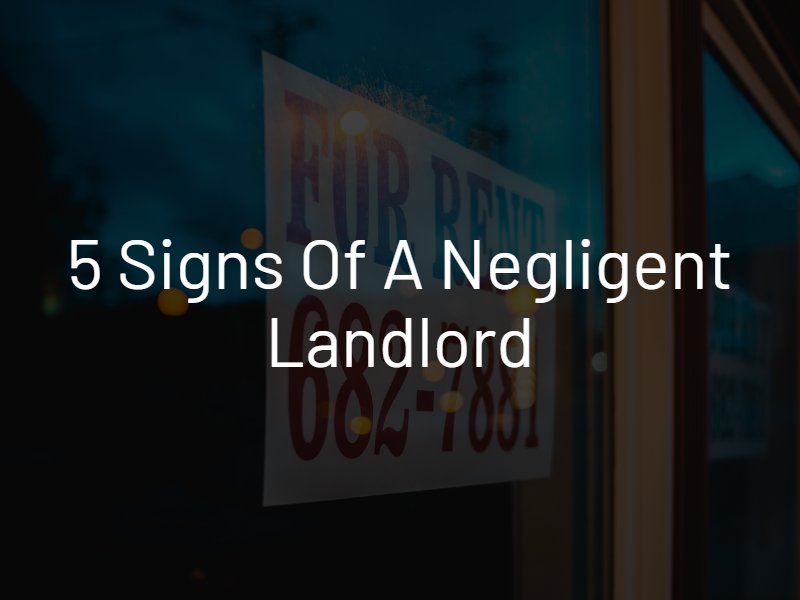
Legally Reviewed By: Robert M. Knowles
Attorney & Partner At Knowles Law Firm
As a tenant in a rented home or apartment in Nebraska, your landlord owes you specific duties of care according to state and federal laws. It is against the law for a landlord to fall short of these duties. If a landlord negligently causes or contributes to an injury that occurs where you live, you may have the right to bring a claim against him or her for damages.
Work with a Omaha landlord negligence lawyer in Omaha for assistance with your personal injury lawsuit. We at Knowles Law Firm look forward to hearing from you and providing support during this difficult time.

1. A Property in Disrepair Due to Ignored Maintenance Requests
One of the main responsibilities a landlord owes his or her tenants is to maintain a reasonably safe place to live. As the owner or person in control of the building, your landlord has a legal duty to make sure your apartment, home, and the surrounding premises are free from hazards. This duty involves regularly inspecting the premises, responding promptly to tenant complaints, and repairing known defects within a reasonable amount of time. Additionally, landlords must provide proper notice before entering the rental unit for inspections or repairs, as failing to do so can violate tenants’ rights and contribute to a negligent living situation.
The following are potential hazards that indicate your landlord is negligent:
- Slip, trip, and fall hazards
- Unsafe staircases or elevators
- Collapsing or crumbling roofs/structures
- Rodent or insect infestations
- Mold, asbestos, or other hazardous substances
- Broken locks on doors or windows
- Lack of appropriate building security
- Faulty wiring or fire hazards
If your rental unit is not safely habitable, you may have a negligent landlord. Dangerous premises can cause many apartment accidents and injuries. If your landlord reasonably should have repaired the issue before your accident happened, he or she could owe you compensation for your related damages for being negligent.
2. Poor Communication With Tenants
It is your landlord’s duty to make him or herself reasonably available for conversations with tenants. The landlord or building owner is legally responsible for addressing housing or safety concerns, including hazards in common areas or your unit. If you have an issue you need to report but have trouble contacting the landlord, this could be a sign of negligence. Difficulty scheduling an initial meeting, viewing a unit, or complaining about a maintenance issue are signs of a negligent property owner.
Understanding and complying with lease terms is crucial for maintaining a positive landlord-tenant relationship and minimizing potential disputes.
3. Discrimination During the Leasing Process
It is against the law for a landlord or property management company to discriminate against you based on your race, ethnicity, color, disability, age, sexual orientation, sex, religion, or another protected class during the rental application process or as a tenant.
It is important to remember that not all landlords are equally responsible, so tenants should remain vigilant and recognize red flags that may indicate a landlord’s lack of reliability or professionalism. If you believe you did not get an apartment or your landlord is neglecting you as a tenant due to discrimination, contact an attorney about a potential civil lawsuit.
4. Unclear Lease or No Lease at All
The lease contract is your protection against certain things, such as the landlord evicting you without reason or walking into your apartment unannounced. Make sure your lease agreement has clear and valid terms by bringing it to a lawyer for a review before signing. A written lease agreement is essential to safeguard against potential issues or rental scams, as it provides clear terms and conditions for both parties. An unprofessional lease with vague or ambiguous terms could be a red flag. You also should not rent from someone who does not give you a leasing agreement to sign at all.
Lack of transparency in lease terms, such as hidden fees and vague clauses, can indicate that a situation may be a rental scam, so tenants should remain vigilant.
5. Unusual Terms or Rental Scams
Be on the lookout for rentals that seem too good to be true. If the price point seems unrealistic, it probably is not an honest deal. Rental scams are common ways for criminals to obtain a victim’s Social Security number, bank account information, and other sensitive personal information. Some scammers go as far as stealing security deposits or rent checks from victims.
Transparency in lease agreements is crucial to avoid potential issues, as hidden fees or vague clauses can be red flags for rental scams.
Protect yourself from scams and dishonest landlords by reading property management company reviews, talking to existing tenants on the property, being wary about better-than-average deals, and avoiding places that demand abnormally high (or nonrefundable) security deposits.
Potential Safety Concerns and Hazards of Negligent Landlords
A landlord’s failure to address safety concerns can lead to hazardous living conditions for tenants. Common safety issues include faulty electrical wiring, leaky gas pipes, and mold growth. Tenants have the right to a safe and healthy living environment, and it is the landlord’s responsibility to ensure this.
If a landlord refuses to address safety concerns, tenants may need to seek assistance from local authorities or a property management company. Ignoring these issues can result in serious health risks and potential legal consequences for the landlord.
Negligence and Its Impact on Tenant Well-Being
Living with a bad landlord can significantly impact a tenant’s well-being. Dealing with an unresponsive or unprofessional landlord can cause stress and anxiety, making tenants feel trapped in a lease agreement with someone who is not meeting their obligations.
In extreme cases, a bad landlord can lead to physical and emotional harm, such as exposure to mold or lead-based paint. It is crucial for tenants to understand their rights and seek help if their landlord’s negligence is affecting their health and safety.
Documenting Issues Can Provide Protection
Tenants should document all maintenance requests and communication with their landlord. Keeping a record of issues can help tenants track patterns of neglect or unresponsiveness. Documenting issues can also provide evidence in case of a dispute or lawsuit. Tenants should take photos and videos of any damage or hazards in the rental unit. This documentation can be invaluable in proving a case against a negligent landlord and ensuring that necessary repairs are made.
Access Local Resources and Support
Tenants can seek assistance from local authorities, such as the housing department or consumer protection agency, if they are dealing with a bad landlord. Property management companies can also provide support and resources for tenants facing issues with their rental property.
Additionally, local non-profit organizations may offer free or low-cost legal aid and advocacy services for tenants. Online forums and communities can be a valuable resource for sharing experiences and connecting with others who have dealt with similar issues. By utilizing these resources, tenants can better navigate the challenges of dealing with a negligent landlord.
Injured By a Negligent Landlord? Contact an Attorney
Negligent landlords are more than just an inconvenience. A bad landlord could make your apartment dangerous to live in, causing related personal injuries, serious illnesses, or property damages. If you suspect your landlord of negligently contributing to your recent injury or accident, contact a lawyer in your area for a free consultation. You may have grounds to file a claim against your landlord in Omaha.
Please contact Knowles Law Firm to learn more about your rights and protections from negligent landlords. You can begin working with us when you call (402) 431-9000 or complete our contact form.

About Our Attorney
Robert M. Knowles
Attorney & Partner at Knowles Law Firm
Robert has tried cases in both state and federal courts and was selected as one of the top 100 litigation lawyers in Nebraska for 2014 by the American Society of Legal Advocates. Less than 1.5 percent of lawyers nationally are selected for this recognition. He is rated AV by Martindale-Hubbell which is the highest rating an attorney can obtain. He was also selected by Martindale-Hubbell as a 2019 Top Rated Lawyer.


 Menu
Menu
